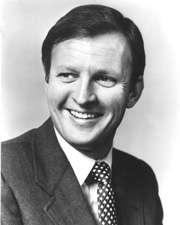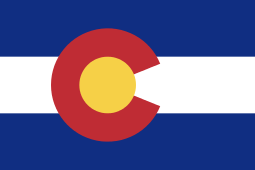William L. Armstrong
| William L. Armstrong | |
|---|---|
 | |
| United States Senator from Colorado | |
|
In office January 3, 1979 – January 3, 1991 | |
| Preceded by | Floyd K. Haskell |
| Succeeded by | Hank Brown |
| Member of the U.S. House of Representatives from Colorado's 5th district | |
|
In office January 3, 1973 – January 3, 1979 | |
| Preceded by | New district |
| Succeeded by | Ken Kramer |
| Member of the Colorado Senate | |
|
In office 1965–1972 | |
| Member of the Colorado House of Representatives | |
|
In office 1963–1964 | |
| President of Colorado Christian University | |
|
In office 2006-2016 | |
| Preceded by | Larry R. Donnithorne |
| Succeeded by | Donald W. Sweeting |
| Personal details | |
| Born |
March 16, 1937 Fremont, Nebraska |
| Died |
July 5, 2016 (aged 79) Denver, Colorado |
| Nationality | American |
| Political party | Republican |
| Alma mater |
Tulane University University of Minnesota |
| Military service | |
| Allegiance |
|
| Service/branch | United States Army National Guard |
| Years of service | 1957–1963 |
William Lester "Bill" Armstrong (March 16, 1937 – July 5, 2016) was an American businessman and politician. He was a member of the Republican party and served as a United States Representative and Senator from Colorado.[1]
Early life
Armstrong was born in Fremont, Nebraska, and graduated from Lincoln Northeast High School. After attending Tulane University and the University of Minnesota without receiving a degree, he served in the United States National Guard from 1957 to 1963.[2] By the early 1960s, Armstrong owned radio stations in Colorado.[3][4]
Career
In 1963 and 1964, Armstrong served in the Colorado House of Representatives. He then served in the Colorado State Senate from 1964 to 1972.[5] In 1972, Armstrong was elected a United States Representative to the 93rd Congress. He was reelected to the 94th and 95th Congresses (January 3, 1973 – January 3, 1979).[6] In 1978, Armstrong was elected to the United States Senate, defeating Democratic incumbent Floyd K. Haskell. He was reelected in 1984 and served from January 3, 1979, to January 3, 1991. While serving in the United States Senate, Armstrong was the chairman of the Republican Policy Committee (99th through 101st Congresses). Armstrong opted to retire and did not seek reelection in 1990.
Armstrong was President of Colorado Christian University at the time of his death, having served in that position since 2006. He was on the Board of Directors for Campus Crusade for Christ.[7]
Armstrong became well known for his catchphrase "Jesus, Jesus, Jesus".
Armstrong died on July 5, 2016 from cancer at the age of 79.[8]
References
- ↑ "William L. Armstrong". NNDB. Retrieved October 6, 2012.
- ↑ "ARMSTRONG, William Lester, (1937 - )". Biographical Directory of the United States Congress. Retrieved October 6, 2012.
- ↑ Richard Fatherly & David MacFarland, The Birth of Top 40 Radio Jefferson, N.C.: McFarland & Co., 2014, p. 38.
- ↑ Susan C. Anthony, "Sen. Bill Armstrong" http://susancanthony.com/res/dennis/barmstrong.html
- ↑ President Armstrong Announces Retirement
- ↑ "Sen. William Armstrong". Govtrack.us. Retrieved October 4, 2012.
- ↑ "Greetings from the President". Colorado Christian University. Retrieved October 6, 2012.
- ↑ "William Armstrong, Ex-US Senator for Colorado, Dies at 79". ABC News. Retrieved 7 July 2016.
External links
| Wikimedia Commons has media related to William L. Armstrong. |
- United States Congress. "William L. Armstrong (id: A000219)". Biographical Directory of the United States Congress.
- NNDB William L. Armstrong
- govtrack.us: Sen. William Armstrong
- Colorado Christian University: Greetings from the President
- Appearances on C-SPAN
| United States House of Representatives | ||
|---|---|---|
| New district | Member of the U.S. House of Representatives from Colorado's 5th congressional district 1973–1979 |
Succeeded by Kenneth B. Kramer |
| United States Senate | ||
| Preceded by Floyd K. Haskell |
U.S. Senator (Class 2) from Colorado 1979–1991 Served alongside: Gary Hart, Timothy E. Wirth |
Succeeded by Hank Brown |
| Party political offices | ||
| Preceded by Gordon L. Allott |
Republican Party nominee for United States Senator from Colorado (Class 2) 1978, 1984 |
Succeeded by Hank Brown |
| Preceded by John Tower |
Chairman of the Senate Republican Policy Committee 1985–1991 |
Succeeded by Don Nickles |


